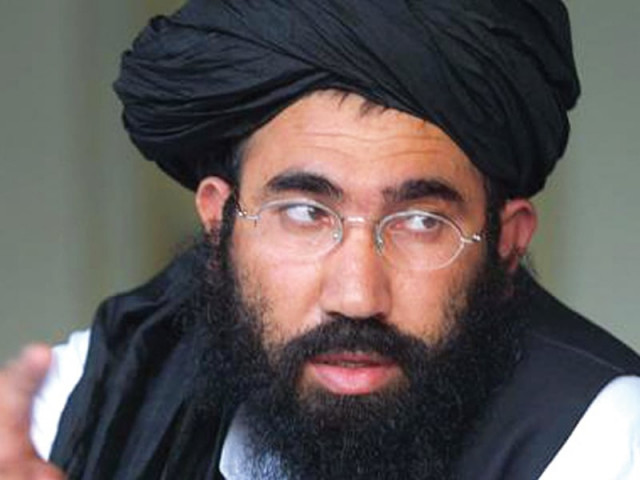Afghan reconciliation: Turkey, Turkmenistan likely hosts for Taliban political office
UN must remove all leaders from the blacklist, says former Taliban official.

Rehmani, former deputy minister of higher education during the Taliban regime, whose name was removed from the UN blacklist on Friday, told The Express Tribune from Kabul that Qatar, Saudi Arabia and the UAE had also been proposed for the Taliban political office.
“I believe that Turkey and Turkmenistan are now emerging as the likely hosts for the Taliban political office,” he said.
Turkey was first proposed for the office last year when the presidents of Afghanistan, Pakistan and Turkey met in Istanbul. Afghan President Hamid Karzai, speaking along Turkish President Abdullah Gul and President Asif Ali Zardari, at a joint press conference, described the opening of the Taliban office as a “development that could help peace talks in his war-torn nation”.
Pakistan – seeking a greater role in the peace and reconciliation process in Afghanistan – had also backed the idea of the creation of a Taliban office. Islamabad has insisted that it supports the Afghan-driven peace and reconciliation process and is now working with Afghanistan in the Joint Commission for Peace and Reconciliation. While Pakistan has said that the Afghan Peace Council, led by former Afghan president Professor Burhanuddin Rabbani, will hold talks with rival armed groups, it has categorically opposed the notion that anyone other than the Afghans lead the peace process.
Rehmani said that the Peace Council “needs a representation and political address of the Taliban for interaction to take the peace process forward”. He said that the world community is also interested in a political office for the Taliban as “we do not know where we should meet the Taliban leaders”.
He added that channels of communication were open for discussion on the issue of Saudi Arabia, the UAE and Qatar as possible venues for the office.
Former Taliban ambassador Mulla Abdul Salam Zaeef also supported the idea of the Taliban office but said there is no substantial progress on the issue.
“I think a place is required for interaction with the Taliban as it is a complicated matter and it would be a long process,” he told The Express Tribune from Kabul on Monday.
“But the important thing is that the Emirate [the Taliban] have not demanded any political office for themselves but the proposal was floated by the Peace Council,” revealed Zaeef.
UN sanction list
Arsalan Rahmani – who is among the 14 people whose names were removed from the UN sanctions lists last week – called for the removal of all names of the Taliban leaders who are fighting the foreign and Afghan forces.
The UN Security Council removed names of 14 former Taliban officials from the UN blacklist which besides Rahmani, included Habibullah Fauzi, Syed Rahman Haqqani and Faqir Mohammad, but all are now members of the government-backed Peace Council.
Rehmani was of the view that the removal of names of only those who have already joined the peace process would not be effective for the peace process. “We are not involved in war and removal of only our names from the blacklist will not change the status quo”, he said. He also called for the removal of the names from the UN blacklist of Hizb-e-Islami (Hekmatyar group) leaders.
He said that no solid step has so for been taken for the reconciliation process, adding that removal of names of the Taliban leaders could be a major “confidence-building measure”.
When asked about the reported talks between Tayyeb Agha, the former spokesman for Mulla Omar, with American officials, he said he doubted the reports.
“I do not have information but I don’t think the talks would have happened,” Zaeef said.
The Afghan president and former US Defence Secretary Robert Gates had publicly said that talks with the Taliban have been held — a claim rejected by the Taliban.
Published in The Express Tribune, July 19th, 2011.



















COMMENTS
Comments are moderated and generally will be posted if they are on-topic and not abusive.
For more information, please see our Comments FAQ